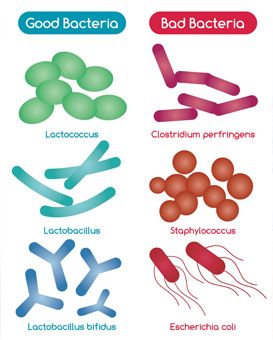Probiotics

What Are Probiotics?
Probiotics are live bacteria and yeasts that have health benefits, especially for your digestive system. Some people think of bacteria and other microorganisms as harmful “germs,” but these microorganisms help our bodies function properly. For example, bacteria that are normally found in our intestines help digest food, destroy disease-causing microorganisms and produce vitamins. Many of the microorganisms in probiotic products are the same as, or similar to, microorganisms that naturally live in our bodies.
What Are The Different Types Of Probiotics?
Many types of bacteria are classified as probiotics. They all have different benefits, but the most common bacteria belong to two groups called Lactobacillus and Bifidobacterium. Lactobacillus is the most common probiotic. It is the one you will find in yogurt and other fermented foods. Bifidobacterium can be found in some dairy products. Other bacteria may also be used as probiotics, as well as yeasts, such as Saccharomyces boulardii.
How Do Probiotics Work?
Probiotics can have a variety of effects in the body and different probiotics may act in different ways.Probiotics are thought to:
- Help to maintain a desirable community of microorganisms
- Out-compete undesirable microorganisms
- Stabilize the digestive tract’s barriers against undesirable microorganisms or produce substances that inhibit their growth
- Help the community of microorganisms in the digestive tract return to normal after being disturbed (for example, by an antibiotic or a disease)
How Can Probiotics Help Your Digestive System?
Among other things, probiotics help send food through your gut by affecting nerves that control gut movement. Some common conditions probiotics are used for include:
- Irritable Bowel Syndrome (IBS)
- Diarrhea
- Ulcerative colitis
- Infection of the digestive tract caused by Clostridium difficile
How To Add Probiotics To Your Diet?
Probiotics can be found in food and dietary supplements. Probiotics are generally considered safe to consume, unless you have a compromised immune system or you are seriously ill.
Food that contains probiotics includes yogurt, fermented cheeses (Gouda, Cheddar, Swiss, and Parmesan), sauerkraut and pickles. Probiotics are also available in the form of dietary supplements, which offer a combination of different strains of bacteria.
Before adding probiotics to your diet, consult with your gastroenterologist about which probiotics are right for you.
